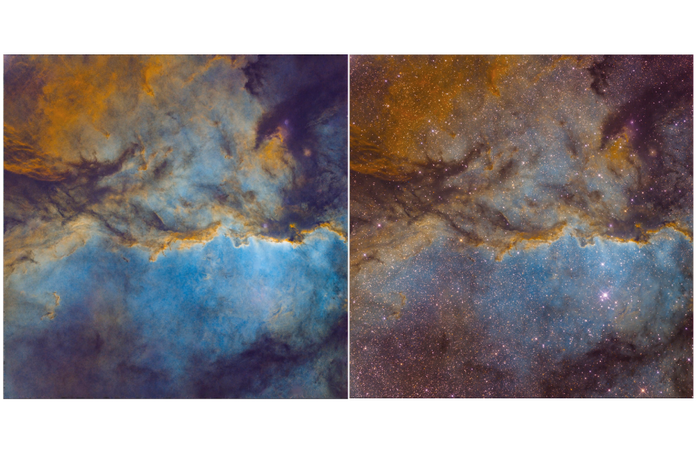Starless Images with StarXTerminator

Hi everyone!
I know I've posted about Starnet before, but I now have a faster and seemingly better way to remove stars from an image.
It even gets diffraction spikes! I saw a discussion on Cloudy Nights about how Russel Croman, the maker of StarShrink and GradientXterminator has made a new thing called StarXTeminator.
I decided to give ti a try and see if it could give me a better result than Starnet either in stand alone format or as a PI plugin.
Well, it does, ohh how it does. With Starnet I've always had to do a lot of clean up and if a star was in a bright area then I had to do cleanup down to the pixel and then would need to still blend stuff over it to fake things.
It would remove most of the stars, but then leave haloes when stretching stuff hard.
It was a pain, but part of my process when I finally started using it.
With StarXTerminator all that excess cleanup went away.
Ohh, I found a few places that I had to do a little touch up on, taking maybe a few minutes to do so, but the result is amazing!
I can actually get starless images that are awesome, or, if need be, I can pull the starless image out, then go back to the original file and push the stars to where I want them, then recombine them using Pixel Math in PI or using Photoshop to do it by combining layers.
You can get it here: https://www.rc-astro.com/resources/StarXTerminator/ and there's a pretty good discussion of it on CN.


Here is an example of what it does, and I pushed the starless version very hard to try to get star removal artifacts!
This is from a previous One Click observation and only has 2x 600 of H, S, and O. It still shows how amazing this does.
You definitely want to do this on the tif version, preferably a 16 bit tif. since a normal 8 bit jpeg is not going to do as well.
I have a comparison for that too. Still, even on the jpeg (which only had this ran on it) you get a better result than with Starnet!


This blog post was originally published in our Telescope Live Community.
The Community represents Telescope Live's virtual living room, where people exchange ideas and questions around astrophotography and astronomy.
Join the conversation now to find out more about astrophotography and to improve your observation and post-processing skills!
